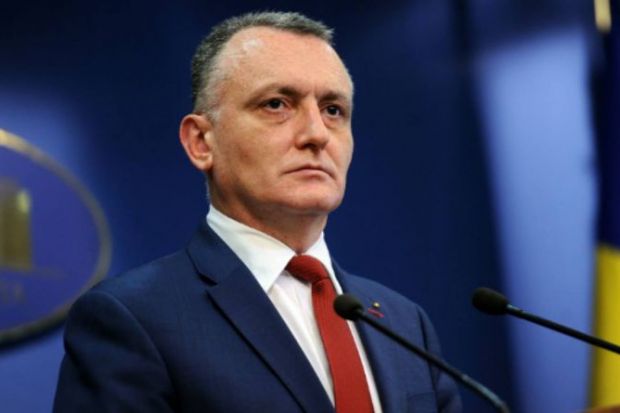Romania’s education minister has resigned after accusations that he plagiarised large parts of a university course in 2006 while working as a professor.
Sorin Cîmpeanu announced his resignation in a Facebook post days after the Press One news site reported that he had claimed credit for 13 chapters previously published by two colleagues at the University of Agronomic Sciences and Veterinary Medicine of Bucharest.
In his post Professor Cîmpeanu, who took temporary leave from his position as rector at the university to become minister, did not respond directly to the allegations made by investigative journalist Emilia Sercan. In a later post he shared a statement by his former doctoral supervisor and co-author of the chapters, Ioan Pleșa, who said Professor Cîmpeanu had displayed “impeccable professional and moral conduct”.
Dr Șercan, who is also an academic at the University of Bucharest, accused Professor Cîmpeanu of reproducing the structure, text, images and tables from the course chapters, getting rid of just five words in their titles.
Professor Cîmpeanu’s resignation comes during a national debate over a controversial draft higher education law that would grant amnesty for plagiarism that happened more than three years ago and eliminate term limits for rectors. Dr Șercan said that Professor Cîmpeanu was “trying to legislate in self-interest” by proposing the plagiarism amnesty.
She has previously exposed plagiarism by two Romanian prime ministers, two former internal affairs ministers, two former defence ministers, a health minister and an education minister, among others.
In his Facebook post Professor Cîmpeanu said it was “an honour for me to start the fundamental reform of the national education system” under the “Educated Romania” initiative, backed by president Klaus Iohannis.
Earlier this year Dr Şercan told Times Higher Education that despite the reintroduction of a national committee to investigate doctoral plagiarism and mandatory academic integrity courses, it could take up to 30 years for Romania to resolve its plagiarism problems.
“Maybe then things will be changed, but this will happen [across] generations and [through] changing the mentality and procedures and laws and even people in some specific positions,” she said.
Romanian academics have accused a group of Romanian rectors close to Professor Cîmpeanu of acting like mafiosi for backing the draft law, which would also weaken rules that prevent candidates’ relatives serving on hiring and promotion committees.
“It’s not in the benefit of the education system, it’s not in the interest of the universities themselves, to have a group of people eternally connected to resources, to university patrimony and finances,” Radu Vancu, an associate professor at the Lucian Blaga University of Sibiu, told THE, referring to the removal of term limits. “It’s about being a famiglia.”
Local media have reported that Professor Cîmpeanu’s resignation was accepted by Prime Minister Nicolae Ciucă, who himself faces allegations of doctoral plagiarism, the third post-holder in a decade to do so. A replacement education minister has not yet been named.
Register to continue
Why register?
- Registration is free and only takes a moment
- Once registered, you can read 3 articles a month
- Sign up for our newsletter
Subscribe
Or subscribe for unlimited access to:
- Unlimited access to news, views, insights & reviews
- Digital editions
- Digital access to THE’s university and college rankings analysis
Already registered or a current subscriber? Login








